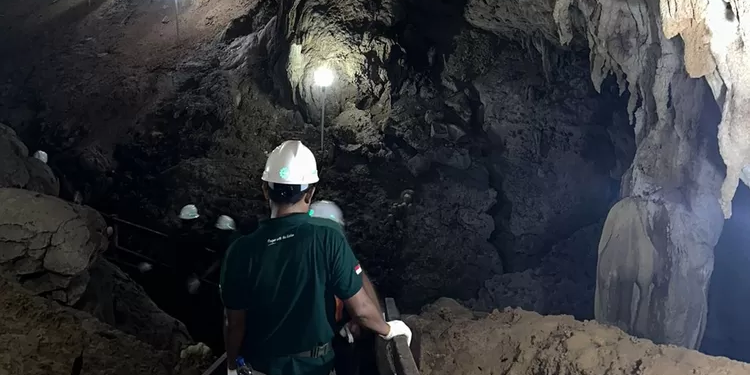Conservation involves maintaining and preserving natural resources and the environment to ensure sustainability. In a broader context, it encompasses all actions aimed at preserving biodiversity, protecting ecosystems, preventing environmental damage, and promoting responsible resource use.
In Indonesia, conservation is crucial for maintaining the country’s rich natural resources, including its biodiversity and the unique ecosystems found throughout the archipelago, especially around the new Capital City (IKN) in East Kalimantan.
PT Astra Agro Group’s subsidiary, PT Sukses Tani Nusasubur (STN), is dedicated to environmental protection and conservation, particularly through the management of conservation areas, which is one of the company’s primary focuses.
The area is located approximately two hours away from the National Capital Region (IKN).
“We are fully committed to preserving the conservation area. One tangible proof of this commitment is the presence of a Conservation Assistant, who is specifically responsible for ensuring that the area is well maintained,” said Victor Aybund, Administrator of PT STN.
Victor Aybund emphasized that a commitment to conservation is a crucial aspect of the company’s sustainability vision. He acknowledged the significance of conservation areas, particularly in an era that increasingly prioritizes environmental and carbon concerns.
PT STN currently manages land for plantation activities, some of which is designated for conservation. The allocation of land for conservation areas is among the largest in East Kalimantan.
PT STN strives to realize company operations that apply the principles of sustainability. PT STN has also obtained the Indonesian Sustainable Palm Oil (ISPO) certification, which shows that the company’s operations are in accordance with sustainability standards set by the government.
“We are ISPO certified, so in terms of sustainability, we are ready to support government programs in protecting the environment,” Victor continued.
PT STN is dedicated to implementing sustainable practices in its operations. The company has received the Indonesian Sustainable Palm Oil (ISPO) certification, demonstrating that its activities align with government sustainability standards.
“We are ISPO certified, which means we are fully prepared to support government initiatives aimed at protecting the environment,” stated Victor. One notable aspect of PT STN’s conservation area is the Tolu Liang Cave, which has both historical significance and natural diversity. Tolu Liang Cave is a major attraction for PT STN due to its active stalactites and stalagmites, and it serves as a venue for education and research. The cave also features coral formations that indicate the area was once submerged under the ocean.
“We are proud to protect areas like Tolu Liang Cave. This is an essential part of our efforts to preserve the natural diversity and the history of its formation,” he explained. Victor emphasized that PT STN’s commitment has the full support of the government, which is reflected in various visits and initiatives to nominate PT STN for conservation-related awards.
Currently, PT STN is being proposed for a conservation award by the Agriculture Office of Penajam Paser Utara in East Kalimantan. Given that PT STN’s conservation area is the largest in East Kalimantan, along with the ongoing monitoring and management efforts, this further solidifies PT STN’s position as a company committed to protecting the environment.
Source: Sawitku.id
Disclaimer
This article may contain copyrighted material, the use of which may not have been pre-authorized by the copyright owner. This material is made available for the purpose of giving information and knowledge. The material contained on the Astra Agro website distributed without profit. If you are interested in using copyrighted material from this material for any reason that goes beyond ‘fair use’, you must first obtain permission from the original source










